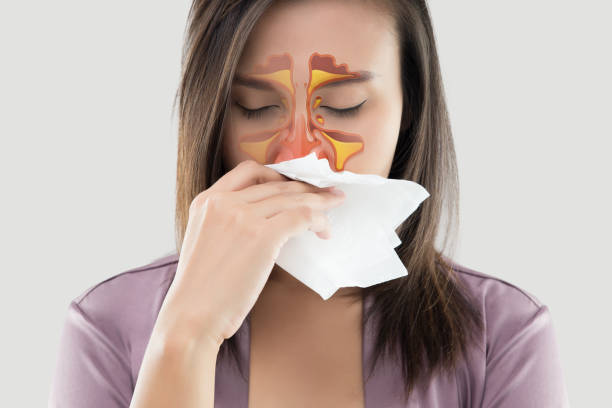Introduction:

Allergies are a common health concern affecting millions of individuals worldwide. They occur when the immune system overreacts to substances that are normally harmless, known as allergens. Allergies can manifest in various forms, ranging from mild discomfort to severe and potentially life-threatening reactions. This article aims to provide a comprehensive understanding of allergies, including their causes, symptoms, and available treatment options.
Causes of Allergies:
Allergies can develop due to a wide range of triggers, and the specific cause varies from person to person. Common allergens include:
- Pollen: Pollen from trees, grasses, and weeds can lead to seasonal allergies, commonly known as hay fever or allergic rhinitis.
- Dust Mites: These microscopic creatures live in house dust, bedding, and upholstery, triggering allergic reactions in sensitive individuals.
- Pet Dander: hypersensitivity to animal fur, saliva, or urine are prevalent, with cats and dogs being the primary culprits.
- Mold Spores: Indoor and outdoor molds release spores that can cause allergic reactions, particularly in individuals with respiratory conditions.
- Insect Stings: Bee stings, wasp stings, or bites from mosquitoes and other insects can lead to allergic reactions, ranging from localized swelling to anaphylaxis.
- Food: Common food allergens include peanuts, tree nuts, shellfish, fish, eggs, milk, soy, and wheat. Food allergies can range from mild gastrointestinal discomfort to severe allergic reactions.
- Medications: Certain medications, such as penicillin and nonsteroidal anti-inflammatory drugs (NSAIDs), can trigger allergic reactions in susceptible individuals.

Symptoms of Allergies:
The symptoms of allergies can vary depending on the type and severity of the allergic reaction. Common symptoms include:
- Respiratory Symptoms: Sneezing, runny or stuffy nose, coughing, wheezing, and shortness of breath.
- Skin Symptoms: Itchy, red, or watery eyes; hives; rashes; swelling (angioedema); and itching or redness of the skin.
- Gastrointestinal Symptoms: Nausea, vomiting, abdominal pain, diarrhoea, and bloating.
- Anaphylaxis: In severe cases, Hypersensitivity can trigger a life-threatening allergic reaction known as anaphylaxis. Symptoms include difficulty breathing, swelling of the throat or tongue, a rapid or weak pulse, dizziness, and loss of consciousness. Anaphylaxis requires immediate medical attention.
Treatment Options for Allergies:
While allergies cannot be cured entirely, several treatment options are available to manage symptoms and reduce the impact of allergic reactions:
- Avoidance: The most effective way to manage allergies is to avoid exposure to known allergens. This may involve keeping windows closed during pollen season, using dust mite-proof bedding, or avoiding certain foods.
- Medications: Over-the-counter antihistamines, decongestants, and nasal sprays can help alleviate symptoms. For severe anaphylactic reaction, prescription medications such as corticosteroids or epinephrine auto-injectors may be necessary.
- Immunotherapy: Allergy shots or sublingual immunotherapy (under-the-tongue tablets) can be recommended for individuals with severe anaphylactic reaction. These treatments gradually expose the immune system to the allergen, reducing the body’s response over time.
- Emergency Care: Individuals at risk of anaphylaxis should carry an epinephrine auto-injector (e.g., EpiPen) and seek immediate medical attention if they experience severe anaphylactic reactions.
Conclusion:
Allergies are a prevalent health concern affecting individuals worldwide. Understanding the causes, symptoms, and available treatment options is crucial for effectively managing hypersensitivity . By implementing avoidance strategies, using appropriate medications, and seeking medical advice, individuals can minimize the impact of allergies and improve their overall quality of life. If you suspect you have allergies, it is advisable to consult with a healthcare professional to receive a proper diagnosis and personalized treatment plan

